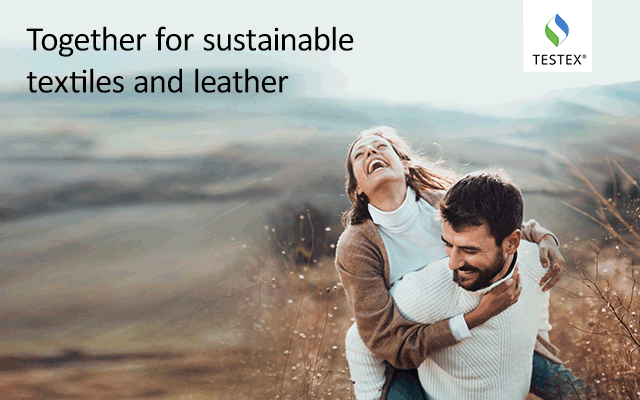Compared to established fashion companies with set assembly techniques, small-scale startups frequently find it simpler to integrate sustainable processes throughout the entire production process. This article delves into the reasons behind this trend and highlights the strategies that sustainable fashion businesses employ to achieve their objectives. Additionally, it talks about the difficulties these entrepreneurs encounter and the assistance they receive from influential institutions. The article also discusses partnerships between well-known fashion designers and brands, and emerging businesses to aid in their transition to sustainability. It further looks at how consumers’ perceptions of sustainable businesses are changing and the competitive advantage that startups have over fast fashion industry giants.
Advantages Startups have in Adopting Sustainable Processes
More adaptable and nimbler: Startups have the advantage of being more adaptable and nimbler in their business processes. They can prioritise sustainability from the start due to their versatility, which enables them to quickly integrate new practices without being hampered by intricate supply chains or expansive manufacturing systems.
Lack of legacy systems: Long-standing fashion companies frequently struggle to change their infrastructure, supply chains, and production processes to adhere to sustainable practices. Startups may design their operations with sustainability in mind since they are not constrained by old systems, providing them a blank canvas to work with.
Cost factors: Including sustainable practices frequently necessitates initial investments in novel technologies, substances, and procedures. Retrofitting old systems can be expensive for established businesses, but startups with lower initial costs can design their business models with sustainability in mind.
Consumer demands: Customers are expecting more and more ethical and sustainable business practices from fashion companies. Startups, being younger and nimbler, have the chance to fulfil this expanding market need and create a brand identity centred on sustainability, whereas established businesses may find it difficult to change their current business models and brand perception to satisfy changing consumer expectations.
Actions Taken by Sustainable Fashion Startups (A multi step approach)
Sustainable materials: They place a high priority on using sustainable materials including recycled textiles, organic cotton, and hemp. Even cutting-edge alternatives like TENCEL or PIATEX (made from pineapple fibres) are tried by several firms. They pick suppliers and producers very carefully who adhere to their sustainability principles.
Ethical manufacturing: These startups place a high value on safe working conditions, ethical labour practices, and worker compensation. Some choose local manufacturing to reduce carbon emissions and guarantee better control of the production process.
Waste reduction: By eliminating fabric waste, reusing scraps, and repurposing resources, startups aim to minimise waste throughout the production process. Some also put the ideals of the circular economy into practice by starting upcycling or take-back programmes.
Marketing and education: Sustainable fashion start-ups inform customers about the negative effects the fashion industry has on the environment and society. Through marketing initiatives, social media, and partnerships with influencers or sustainability supporters, they increase public awareness.
Startups place a strong emphasis on openness by disclosing details about their manufacturing procedures, supplier chains, and material sources. Some even use blockchain technology to guarantee the authenticity and traceability of their items.
Challenges Faced by Startups in Sustainable Fashion
Scaling and cost: Due to the higher costs of sustainable resources and the investments necessary in environmentally friendly production methods, scaling sustainable production can be expensive. Since startups may have limited resources, they must carefully balance their sustainability objectives with their financial objectives.
Consumer awareness and perception: Although there is an increasing interest among consumers in sustainable fashion, many still place a higher value on affordability and convenience than sustainability. To increase demand and alter consumer behaviour, startups must inform consumers about the value and advantages of sustainable fashion.
Support for sustainable fashion: Startups in the sustainable fashion industry require sufficient support to overcome the specific challenges they face. To address this, government agencies and non-profit groups should offer a variety of initiatives to assist and empower these entrepreneurs.
Grants and financing: Accessing grants, financing programmes, and financial incentives becomes crucial for startups in sustainable fashion to overcome the financial difficulties associated with sustainable production. Governments, impact investors, and philanthropic organisations often offer grants, loans, and other financial resources specifically targeted at supporting sustainable fashion initiatives. Startups can tap into these resources.
Policy and regulation: Adapting to evolving policies and regulations aimed at promoting sustainability in the fashion industry presents a challenge for startups that prioritise sustainable practices. It is because governments worldwide are increasingly implementing stricter rules and guidelines to address environmental and social concerns in the fashion sector.
Sustainable materials: Accessing a dependable and continuous supply of sustainable materials can be challenging, particularly for smaller firms with constrained purchasing power. To guarantee the authenticity and sustainability of their resources, startups often rely on partnerships and certifications.
Smaller firms should take benefit from networking opportunities, collaborations, and knowledge exchange between sustainable fashion startups that are made possible by organisations and trade groups. At times, emerging brands are supported by, mentored by, and guided by these platforms.
Notable Organisations Supporting Sustainable in the Fashion Industry
Fashion Revolution: It is an international movement that promotes a more accountable and sustainable fashion industry. The organisation works to reform existing practices and offers funding to sustainable fashion startups.
Sustainable Apparel Coalition (SAC): It is an industry-wide partnership dedicated to reducing the negative environmental and social impacts of the clothing and footwear industries. It provides support, information, and tools for sustainable practices.
Global Fashion Agenda: It is a non-profit organisation that promotes sustainability in the fashion sector. It hosts the Copenhagen Fashion Summit and offers initiatives and programmes to support sustainable entrepreneurs.
Textile Exchange: It is an international non-profit organisation working to accelerate the adoption of preferred fibres and ethical business practices in the textile sector. It provides sustainable entrepreneurs with access to resources, certifications, and networking opportunities.
Collaboration between Established Designers and Brands and Emerging Sustainable Fashion Startups
Stella McCartney: Renowned for her commitment to environmentally friendly clothing, Stella McCartney has been at the forefront of sustainable fashion. In addition to her own brand, McCartney has also collaborated with Kering, a luxury conglomerate, which serves as a key supporter of her sustainable initiatives.
Eileen Fisher: Eileen Fisher, a fashion brand known for its emphasis on sustainability, women’s empowerment, and social change, actively collaborates with emerging businesses and organisations. Through its “Eileen Fisher Community Partnerships” programme, Eileen Fisher works with businesses and organisations.
H&M Foundation: The H&M Foundation is a non-profit organisation that promotes sustainable and circular solutions in the fashion industry by offering support to entrepreneurs and innovators through initiatives like the Global Change Award.
Kering: Kering, a leading luxury goods group, demonstrates its commitment to sustainability through various initiatives, including its innovation centre. Through programmes like the Kering Innovation Award, Kering supports sustainable businesses by providing mentoring, financial assistance, and industry visibility.
Advantages of Sustainable Fashion Startups Over Fast Fashion Giants
Brand identification: Startups can base their brand identification on sustainability from the beginning, drawing customers looking for ethical and ecologically beneficial solutions. They stand apart from conventional fast fashion manufacturers due to their dedication to sustainability.
Innovation and agility: New businesses are frequently more innovative and able to respond rapidly to shifting consumer needs and emerging sustainable practices. They may test out cutting-edge materials, manufacturing processes, and business concepts, providing them a competitive edge in the ever-changing fashion industry.
Consumer engagement and trust: Consumers place a higher importance on sustainability, moral behaviour, and openness. These criteria can help startups gain the trust and commitment of conscientious customers, which can lead to long-term customer relationships and positive word-of-mouth.
Changing consumer perceptions: The perception and purchasing patterns of consumers are evolving in favour of sustainable and ethical brands. Increasingly, consumers are becoming aware of the environmental and social impact of fast fashion and are seeking alternatives that align with their values.
Social media influencers and platforms have a big part to play in raising public awareness about sustainable fashion. Consumers are exposed to data, narratives, and material that support sustainable brands, which affects their purchasing choices.
Rise of conscious consumption: As consumers give priority to purchases that have a positive impact on the environment and society, conscious consumerism is gaining ground. They actively look for brands that share their values and are willing to pay more for sustainable goods.
Adapting fashion trends: Mainstream fashion trends are progressively incorporating sustainable fashion. Eco-friendly and ethical fashion is promoted by designers and influencers, increasing its appeal to customers. The expansion and success of sustainable fashion firms are being fuelled by a combination of customer demand, government assistance, and the distinctive advantages of startups. The traditional fast fashion industry is being challenged by this trend, which is affecting customer behaviour.
Prominent Fashion and Lifestyle Startup Brands Making an Impact
Everlane: This company focuses on high-quality basics and essentials while providing extensive information about its factories and manufacturing procedures. Everlane is renowned for its transparent pricing and ethical manufacturing practices.
Allbirds: A sustainable footwear company, Allbirds prioritises comfort, simplicity, and lowering carbon emissions. It uses natural and renewable materials such as merino wool and eucalyptus fibres to create shoes.
Reformation: Mixing cutting-edge styles with environmentally sustainable methods, Reformation emphasises ethical manufacturing and provides detailed information on each item’s environmental impact. The company strives to make sustainable fashion accessible and stylish.
Rothy’s: Known for its chic and cozy footwear made from recycled plastic bottles, Rothy’s has gained recognition for its innovative use of materials and commitment to waste minimisation.
Patagonia: Renowned for its outdoor apparel, Patagonia also places a high priority on social responsibility and sustainability. Patagonia actively promotes environmental causes, prioritises fair trade practises, and uses recycled materials.
Veja: For this French footwear company that specialises in trainers produced from eco-friendly materials like wild rubber from the Amazon rainforest and organic cotton, transparency and ethical business practises are priorities.
Girlfriend Collective: An eco-friendly activewear company that makes its goods from recycled materials including plastic bottles, Girlfriend Collective supports inclusion, body positivity, and supply chain transparency.
Outerknown: Founded by professional surfer Kelly Slater, Outerknown is an apparel company that prioritises sustainability and fair labour practices. It uses organic and recycled materials in its creations, aiming to create durable and environmentally conscious clothing.
These young companies represent creative and thoughtful approaches to sustainability, moral behaviour, and customer interaction. Each company has a distinctive ideology that makes it interesting to learn about their contributions to a more environmentally friendly fashion business.
However, it is crucial to recognise that implementing sustainable practises can be difficult, even for young businesses. They must handle problems like resource limitations, limited access to suppliers of sustainable products, and the need to reconcile sustainability with other commercial considerations. Nevertheless, startups have an edge over long-standing fashion enterprises due to the lack of legacy infrastructure and the capacity to give sustainability top priority from the start.




_Big.jpg)





Comments